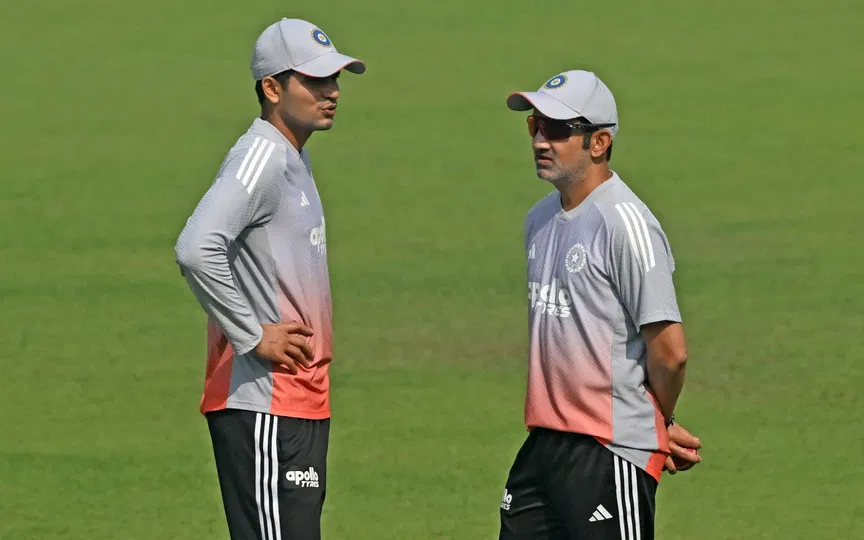![Gautam Gambhir to face his biggest Test yet [Source: @VedantRusty/X.com]](https://onecricketnews.akamaized.net/parth-editor/oc-dashboard/news-images-prod/1763720230599_Gautam_Gambhir_India_South_Africa.jpg?type=hq) Gautam Gambhir to face his biggest Test yet [Source: @VedantRusty/X.com]
Gautam Gambhir to face his biggest Test yet [Source: @VedantRusty/X.com]
The Guwahati Test between India and South Africa feels bigger than just another match on the calendar. For head coach Gautam Gambhir, it could quietly decide the future of his red-ball coaching career.
With India facing South Africa at home in the second Test, the pressure isn’t just on the players, it’s firmly on the man sitting in the dressing room with the final say.
Yet another home series loss might be tough to digest
Let’s be honest. Gautam Gambhir’s record as a red-ball coach at home hasn’t inspired much confidence.
India, a team once seen as almost unbeatable in home Test series, has looked shaky and unsure in recent times.
Since Gambhir took over as head coach, India have lost four of their last six home Tests, including the series sweep against New Zealand.
Now, with India trailing 0-1 in the two-game series against South Africa, another series loss at home will definitely be a tough outcome to digest for fans as well as the BCCI.
Gautam Gambhir at the centre of criticism
Questions are being asked, and many believe the answers point back to the coach’s methods. One of the biggest criticisms around Gautam Gambhir is his stubbornness. He often appears unwilling to change course, even when a plan clearly isn’t working.
Team selections, batting orders, and field settings have raised eyebrows. Critics feel he tends to persist with unusual tactics simply to prove a point, rather than adjusting to the situation in front of him.
There is also talk about his defiant attitude. Gambhir has never been one to back down in press conferences or interviews.
While his honesty is refreshing, it sometimes gives the impression that he refuses to take accountability or soften his stance, even when results don’t go his way. For a head coach, that can be risky.
What makes the Guwahati Test different?
That being said, the Guwahati Test comes at a dangerous time. India playing South Africa at home is not supposed to be a crisis situation.
This is traditionally where India dominate, control games, and assert their superiority. If that aura is slipping, then someone has to take responsibility, and that someone is often the red-ball coach.
What makes this situation even more interesting is the contrast between Gambhir’s red-ball and white-ball records.
In limited-overs formats, he has done a good job. India have won the Champions Trophy and Asia Cup in addition to the many bilateral series.
The team has looked sharper, more confident, and better prepared. That’s why a complete exit seems unlikely. Instead, there is a growing feeling that only his role as red-ball coach could be under serious threat.
This is what makes Guwahati so important. It’s not just about runs and wickets. It’s about belief. It’s about whether the team looks like it trusts the process, especially in the transition phase, where experience to gauge things is lacking.
If India lose the home series against South Africa, it could act as a trigger for big decisions behind closed doors. BCCI has a tendency to be ruthless, and Gautam Gambhir, despite having complete freedom and authority, already appears to be balancing his job on a borrowed rope.
Final thought
Overall, the upcoming Test between India and South Africa, slated at Guwahati, is not just a match. It's a silent verdict moment.
Win, and Gautam Gambhir buys himself time, respect, and breathing space. Lose the home series, and the noise around his “future” might become impossible to ignore.
Gautam Gambhir’s white-ball future may still be safe. But his red-ball chapter? That could be rewritten or cut short, starting from Guwahati.



.jpg?type=mq)


